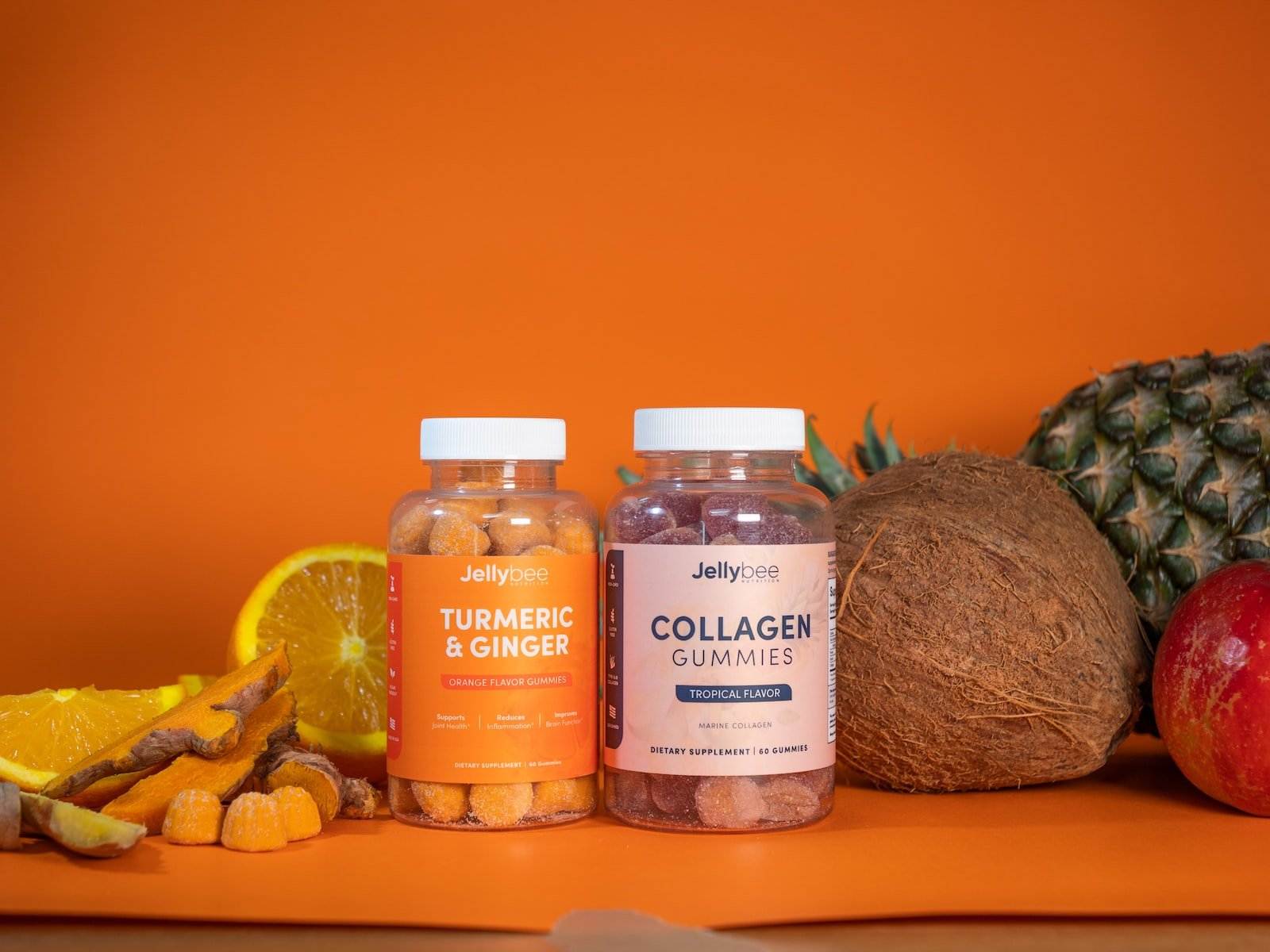Seeking optimal health? Balancing a diet can be challenging. Dietary supplements might fill the gaps in our nutrition. However, the world of supplements is complex. Let’s explore its benefits and pitfalls together.
Table of Contents
5 Pros of Taking Dietary Supplements
1. Nutritional Deficiencies
Filling the Gaps in Your Diet
You might find that you’re not obtaining enough nutrients from your food. In such cases, dietary supplements can act as a useful tool to fill those gaps. For example, vegetarians and vegans may have trouble getting certain nutrients, such as vitamin B12 and iron, through their diet alone. By incorporating dietary supplements, you can ensure your body receives the essential nutrients it needs to function optimally.
Tip: Choose supplements that are specifically tailored to your dietary restrictions and consult with a healthcare professional to determine the best options for your needs.
2. Convenience
Simplifying Nutrient Intake
In today’s fast-paced world, it can be challenging to consistently prepare nutrient-dense meals. By taking a vitamin or supplement every day, you can obtain the required daily intake of important nutrients more easily and conveniently. Think of supplements as your nutritional insurance policy, making sure you’re covered even when life gets hectic.
Example: A busy professional might find it difficult to consume enough fruits and vegetables daily. Taking a high-quality multivitamin can help ensure they’re meeting their daily nutritional requirements.
3. Enhancing Athletic Performance
Boosting Performance and Recovery
If you’re an athlete or someone who engages in intense workouts, you may benefit from certain supplements to enhance your performance and recovery. Protein powder and creatine are two popular supplements that can help you reach your fitness goals. Protein powder aids in muscle repair and growth, while creatine improves energy production and supports muscle strength.
Analogy: Think of protein powder and creatine as the dynamic duo of athletic supplements. They work together to help you perform better and recover faster, much like a well-oiled machine.
4. Focused Health Objectives
Personalized Health Solutions
Dietary supplements can be taken to address specific health concerns, such as boosting immunity or improving heart health. This enables you to adopt a more individualized approach to your health and fitness journey. By tailoring your supplement regimen to your unique needs, you can ensure you’re providing your body with the targeted support it requires.
Tip: Consult with a healthcare professional to determine which supplements may be best suited for your focused health objectives.
5. Aging
Supporting Your Health as You Age
As we grow older, our bodies may require extra nutrients that are difficult to obtain through food alone. Supplements play a crucial role in maintaining overall health during the aging process. For example, calcium and vitamin D supplements can be especially beneficial for elderly individuals’ bone health, helping to prevent age-related bone loss and fractures.
Analogy: Consider supplements as your body’s maintenance crew, working behind the scenes to support your health and well-being as you age gracefully.

5 Cons of Taking Dietary Supplements
1. Potential Health Risks
Interactions and Side Effects
While dietary supplements can offer various benefits, they also come with potential health hazards. Certain supplements may interact poorly with medications or cause severe side effects. For example, excessive vitamin A intake can harm the liver, and too much vitamin E can increase the risk of bleeding.
Tip: Consult with a healthcare professional before starting any new supplement regimen, especially if you’re taking medications or have existing health concerns.
2. False Claims
Beware of Misleading Marketing
Unfortunately, some supplement manufacturers overstate or make misleading claims about the efficacy of their products, causing customers to waste money on ineffective supplements. To avoid falling prey to such claims, it’s crucial to conduct research and read reviews from reliable sources before purchasing any supplements.
Example: A weight loss supplement might promise rapid results with minimal effort. However, upon further investigation, you might find that the product lacks scientific evidence to support its claims.
3. Issues about Quality
Ensuring Supplement Quality
Not all supplements are created equal. Some may contain dangerous contaminants or not provide the claimed nutritional content. To ensure you’re choosing supplements that meet quality standards, look for products that have undergone independent testing by third-party organizations.
Analogy: Think of third-party testing as a seal of approval, verifying that a supplement’s contents match its label and are free from harmful substances.
4. Cost
Balancing Budget and Health Priorities
High-quality supplements can be pricey, especially if you need to take multiple supplements to address different health concerns. It’s essential to budget wisely and prioritize the supplements that are most crucial to your health.
Tip: Compare prices and quality among different brands, and consider investing in bulk purchases or taking advantage of sales and discounts when available.
5. Dependency
Supplements Are Not a Substitute for a Healthy Lifestyle
Some individuals may develop a dependence on supplements, neglecting the importance of a balanced diet and healthy lifestyle. Remember, supplements should only be used as a tool to enhance overall wellbeing, not as a replacement for proper nutrition and lifestyle habits.
Analogy: Imagine supplements as a helpful sidekick on your health journey, while a nutritious diet and active lifestyle are the superheroes leading the way to better health.

Practical tips on choosing high-quality supplements and avoiding potential issues
Navigating the Supplement World
Regulations and Certifications
To ensure high-quality supplements, look for seals from organizations like USP, NSF International, or ConsumerLab. These groups verify purity, potency, and quality, setting high standards for the products they certify.
Choosing Reputable Brands
Select well-established brands with a solid reputation to avoid issues such as contamination, inaccurate labeling, or substandard ingredients.
Picking Bioavailable Ingredients
Opt for supplements with easily absorbed and utilized nutrient forms, like methylcobalamin for vitamin B12 and magnesium citrate instead of magnesium oxide.
Consult Healthcare Professionals
Seek advice from healthcare experts to:
- Identify your specific needs
- Avoid medication interactions
- Use appropriate dosages
Remember, more isn’t always better, as excessive amounts can lead to toxicity or other issues.
Evaluate Marketing Claims
Approach miraculous claims with skepticism, and focus on well-formulated supplements that provide valuable health support.
Summary
When choosing supplements, consider certifications, select reputable brands, pick bioavailable forms, consult professionals, and critically assess marketing claims. This approach will help you make informed decisions and enhance your well-being with high-quality supplements.
Conclusion
Although dietary supplements can help in addressing health issues and enhancing wellbeing, it’s important to balance their advantages and disadvantages. Research and consultation with a healthcare practitioner are recommended before deciding if supplements are necessary. The best way to maintain excellent health is through a balanced diet and healthy lifestyle; supplements should only be taken in addition to these practices to enhance overall wellness.
FAQs About Dietary Supplements
Q. Should I consume dietary supplements?
Whether you need to take dietary supplements, it will depend on your own health needs and eating habits. It is advised to speak with a healthcare professional in order to evaluate whether supplements are appropriate for you.
Q. Does consuming dietary supplements carry any risks?

While many nutritional supplements are risk-free, some may be harmful to your health. All new supplements should be thoroughly investigated and discussed with a healthcare provider before use.
Q. Can supplements take the place of a healthy diet?
The main source of nutrition for overall health and wellness should always be a varied, balanced diet that is high in nutrient-dense foods.
Q. Are supplements that are natural superior to those that are synthetic?

Natural and synthetic supplements might both have benefits and drawbacks, thus there is no concrete proof that one is superior to the other. You may choose the sort of supplement that is ideal for you by researching the individual supplement and its contents.
Q. Can you overdose on supplements?
Absolutely, taking too many vitamins might have bad impacts on your health. It’s important to adhere to suggested doses and not take more supplements than is advised daily. A healthcare practitioner should be consulted before beginning any new supplement program.



